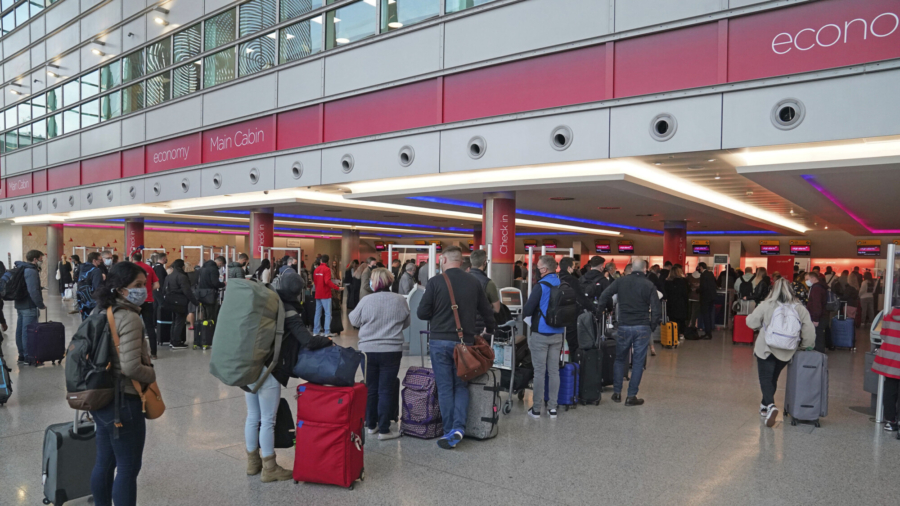The United States on Monday resumed border crossings via land and ferry for non-essential reasons to travelers who are fully vaccinated against the CCP virus, following more than a year of disruptions due to COVID-19 restrictions.
“Today, after more than 18 months of pandemic-related travel restrictions, DHS is taking a critical step toward resuming normal travel,” Alejandro N. Mayorkas, secretary of homeland security, said in a statement.
“Travelers who are fully vaccinated for COVID-19 and have appropriate documentation are now permitted to enter the United States via our land and ferry border crossings for non-essential reasons such as visiting friends and family and engaging in tourism,” he said.
At the beginning of March 2020, to prevent further spread of the CCP (Chinese Communist Party) virus, then-President Donald Trump announced the ban on “non-essential” border crossings that included non-U.S. citizens from a long list of countries in Europe, Mexico, Canada, and others.
“We made a life-saving move with early action on China. Now, we must take the same action with Europe,” Trump said in his address at the time, referring to how his administration suspended travel from China to the United States in January 2020.
The U.S. Customs and Border Protection (CBP) warned travelers that they are expecting long lines in the initial days of reopening and advised everyone to familiarize themselves with the new guidelines on its website, and have all the appropriate documents at hand during border inspections.
In the DHS travel guidance, the department announced that starting on Nov. 8, when arriving at a U.S. land port of entry (POE), non-U.S.-citizens should be prepared to provide proof of COVID-19 vaccination, as outlined on the Centers for Disease Control and Prevention (CDC) website, and verbally state their reason for travel during border inspection.
Unvaccinated individuals are currently still allowed to engage in essential travel, although, starting in January 2022, “all inbound foreign national travelers crossing U.S. land POEs or ferry terminals—whether for essential or non-essential reasons—must be fully vaccinated for COVID-19 and provide related proof of vaccination,” the DHS said.
The reopening will have a profound effect on the U.S. borders with Mexico and Canada, where traveling back and forth was a way of life until the pandemic hit and the United States shut down non-essential travel.
Tijuana’s border with San Diego is one of the busiest in the world, with thousands crossing to work, study or shop daily.
Jose Garcia, the director of migrant shelter Movimiento Juventud 2000 in Tijuana, said there has been a lot of misinformation spreading on the reopening, reminding illegal immigrants that “the reopening of the border is for people who have papers, a visa, to cross and it’s not a reopening for people to cross and ask for asylum and humanitarian aid.”
Thousands of illegal immigrants have arrived in areas along the nearly 2,000-mile U.S.–Mexico border, hoping the lift in restrictions will make it easier for them to cross. The Biden administration has not required people entering illegally to provide proof of vaccination or negative COVID-19 status.
The United States will accept travelers who have been fully vaccinated with any of the shots approved for emergency use by the World Health Organization, not just those in use in the United States. That’s a relief for many in Canada, where the AstraZeneca vaccine is widely used.
Reuters contributed to this report.


